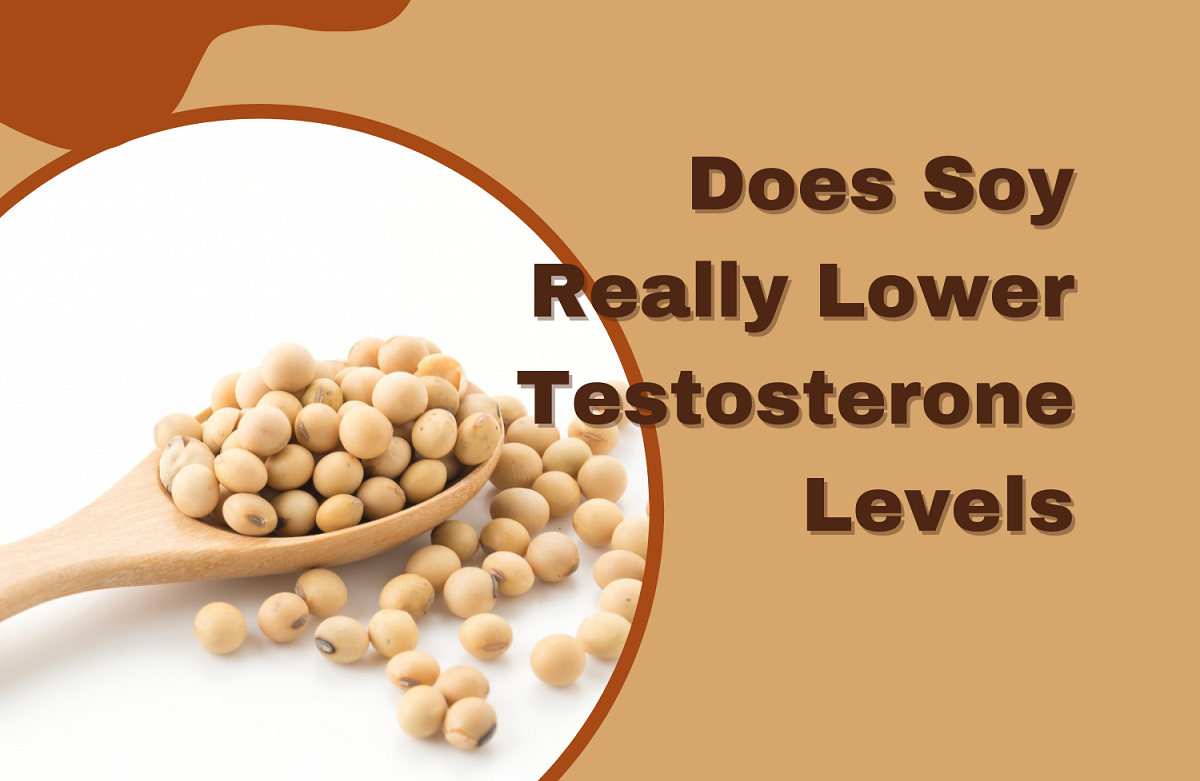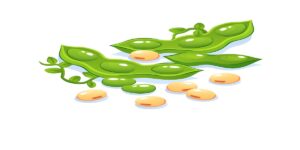Does Soy Lower Testosterone Levels?

The relationship between soy and testosterone has always been one of the most controversial subjects in the fitness world. There are widely spread concerns that the intake of soy might lower testosterone levels in men. Not just that- it may lead to Gynecomastia (growth of male breasts) or even worse, may cause fertility issues by affecting the quality of sperm.
This can come as a shocker because soya is known for its innumerable health benefits. There are some studies that also support the negative claims mentioned earlier, but, it is important to note that these findings are obsolete. They lack crucial data and also have been conducted on a limited number of test subjects.
In order to find out if soy actually brings down testosterone levels, what the science says, and more, we dug deeper into the subject and went through more recent research studies. Here’s what we found-
Soy Role In Testosterone – Background!
The myth about soy lowering testosterone levels actually comes from what it packs in it. Breaking down the composition of soy reveals that it has a compound called isoflavones in high concentration, which is phytoestrogen. Phytoestrogen is a plant-based estrogen that mimics the activities of the estrogen hormone present in the human body.
As we know, estrogen is present in both male and female bodies, however, the concentration of it greatly varies. While it is one of the most crucial hormones in women, a high concentration of estrogen is harmful to men. Therefore, there has to be a balance of hormones and ideally, in men, the estrogen must be present in low qualities.
A well-balanced hormone in men is absolutely essential for their sexual health, fertility, healthy sperm generation, sex drive, etc. Therefore, it is quite natural to think that when a compound like isoflavones, which imitates the functions of estrogen, goes inside the male body, it can create a hormonal imbalance by extending the activities of estrogen. This can then impact the normal functioning of the male body by showing the symptoms associated with low testosterone levels like male breasts, erection issues, etc.
Now while a few research sources have agreed with this assumption, the later studies have contracted it.
What Do Various Studies Say About So’s Role With Testosterone

The earlier research reports and case studies state that high amounts of soy intake can adversely affect the testosterone levels in the male body by enhancing the functions of estrogen.
However, with time more modern research was conducted on this subject for re-evaluation of the findings.
A 2009 case analysis involved a thorough examination of over 32 studies conducted on more than 35 clinical trials on the effect of soy on low testosterone levels. It was determined that the intake of soy products or isoflavone supplements had no effect on the free testosterone concentration in men. In other words, the testosterone levels did not go down after soy intake.
To support the above findings two more meta-analyses were run- one of which was published in 2010 in Fertility and Sterility and the more recent one updated in 2021 in Reproductive Toxicology. The reports from these extensive studies made it clear that soy has no effect on the male reproductive hormone. It also confirmed that testosterone levels are not affected adversely even when soy products are taken consistently for a long period of time.
Which Food Have Soy Protein

As mentioned earlier, soy protein is completely plant-based and is extracted from soybeans, a staple food in several parts of the world. Soy is used in several types of food because of its high-quality protein content. It is also suitable for a larger mass of people as it is vegan-friendly unlike other forms or sources of protein. It also gives a subtle flavor to the food it is added to and forms a part of a healthy diet.
.
Our body needs different types of essential amino acids for proper functioning but not all of them are produced by the body naturally. Some of them are supplemented through different kinds of foods. Food that contains soy protein, therefore, gives an excellent boost of essential amino acids. Here’s a list of some soy-rich foods:
| ● Edamame or Soybeans | ● Soy Flour |
| ● Soy Milk | ● Soy oil and sauce |
| ● Tofu | ● Protein Powders |
| ● Miso | ● Soy Yogurt |
| ● Tempeh |
What Makes Soy Protein Different
While the health benefits of soy protein and proteins sourced from animals are almost similar, soy protein is significantly different from animal protein. Here’s how-
Conclusion
After going through the latest research reports, we found that soy does not lower testosterone levels in men. While the phytoestrogens present in soy do mimic the functions of natural estrogen produced by the body, it does not alter the testosterone response, its concentration, or its production. In fact, this plant-based protein is packed with numerous other vitamins and minerals along with all the essential amino acids that can help balance testosterone levels.
